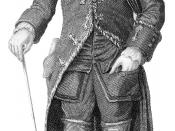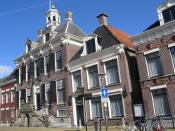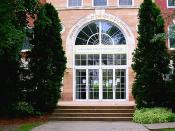The Enlightenment Age
In the eighteenth century, science had developed a lot since the sixteenth century. This is the century of optimism and materialism as in his book Culture and Values A Survey of the Humanities, Lawrence Cunningham described this century "the eighteenth century was an age of optimism. It had trust in science and in the power of human reason, belief in a natural order, and an overriding faith in the theory of progress that the world was better than it had ever been and was bound to get better skill" (413) This somehow is similar to the humanism in the fourteenth century, which believed in the ability of human. But in this century, there were so many conflicts between every classes of the society, so Lawrence said that this is an age of "diversity", not really an age of "enlightenment".
As we knew before this century, all the power of the country belonged to the king's possession.
He could do whatever he wanted. But in this age, it was not true any longer "they no longer thought of their kingdoms as private possessions to be manipulated for personal pleasure. Instead, they regarded them as trusts, which required them to show a sense of duty and responsibility." (413) Since this time, people require form their king much more, this means the more power the king has, the more duty and obligation the king must do. Since that reason, the king does not have much trust from his people, so they have to find their own path, and this leads to many conflicts between the classes of society "the eighteenth century was marked by pervasive resentment and dissatisfaction with established society" (413) Because there were so much disagreement between the "monarchy", "bourgeois", "middle class", and "working class" and the miserableness...


